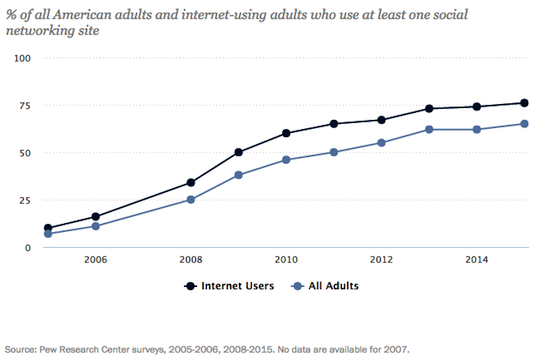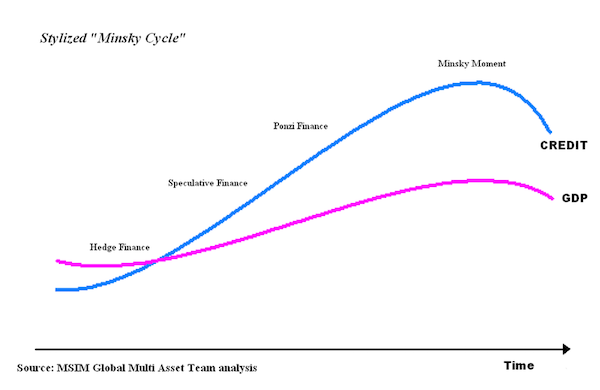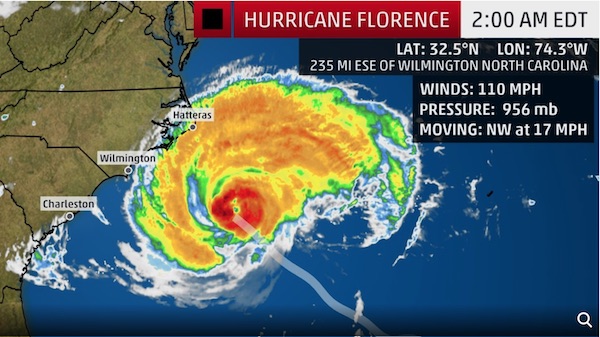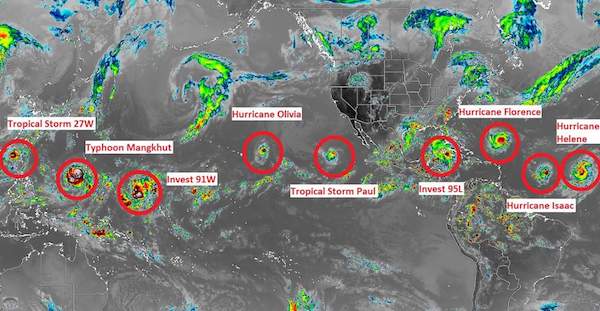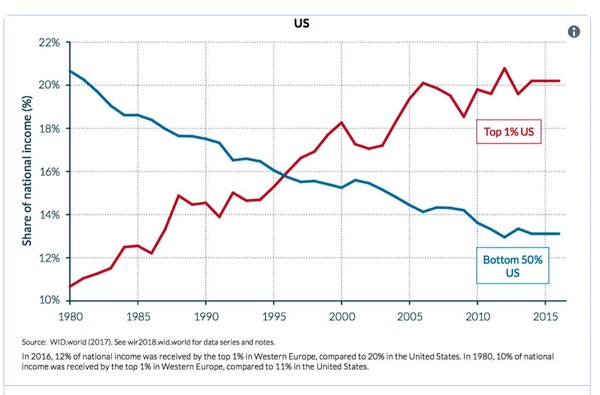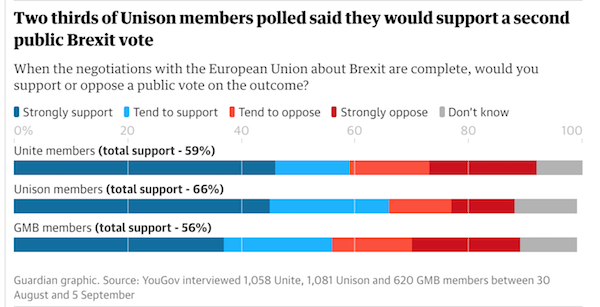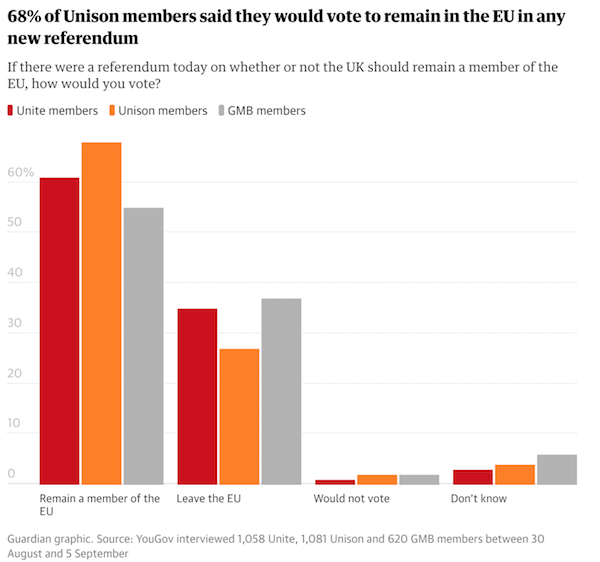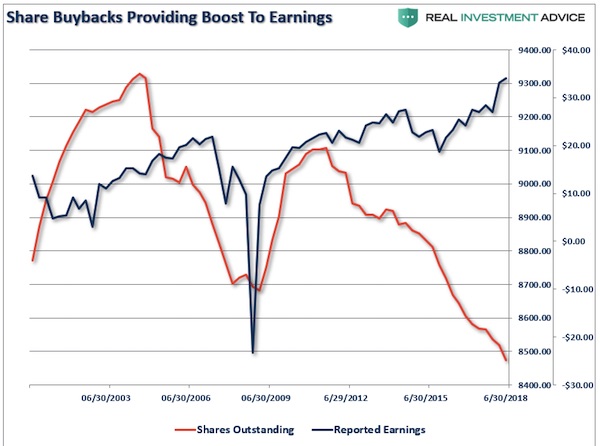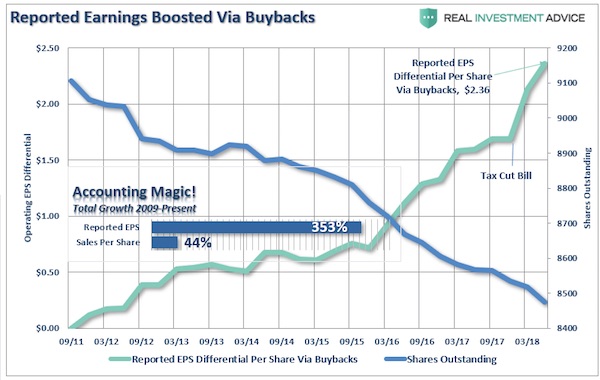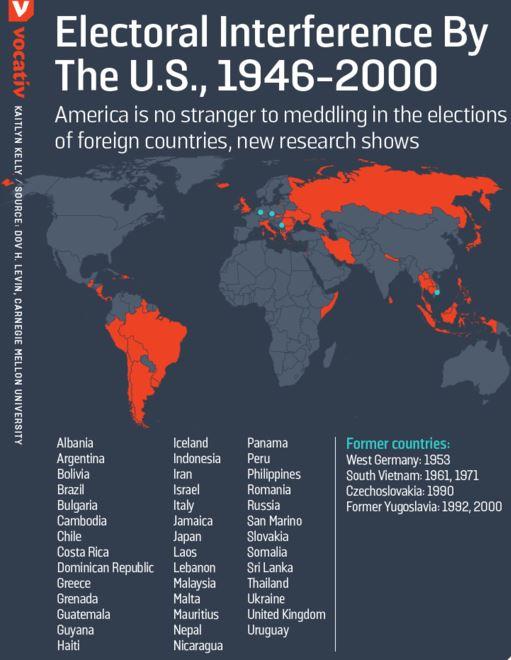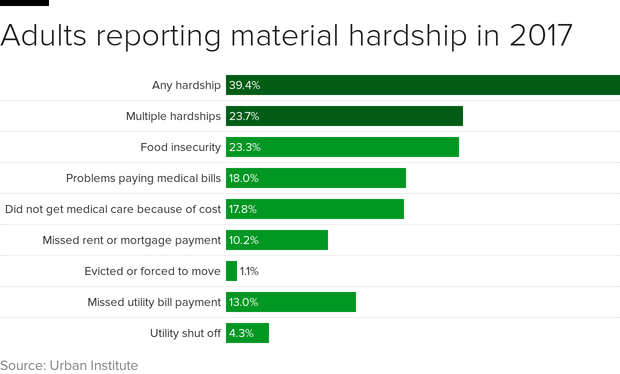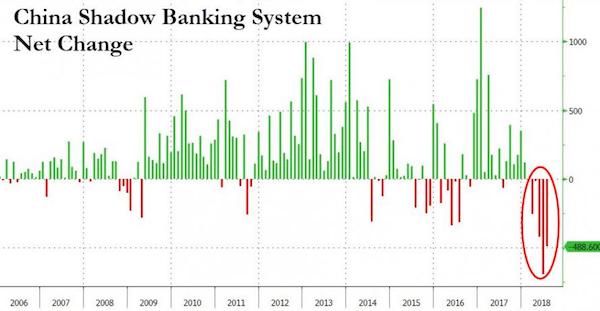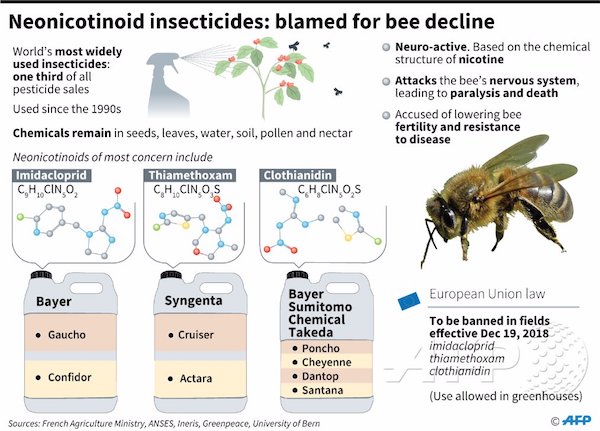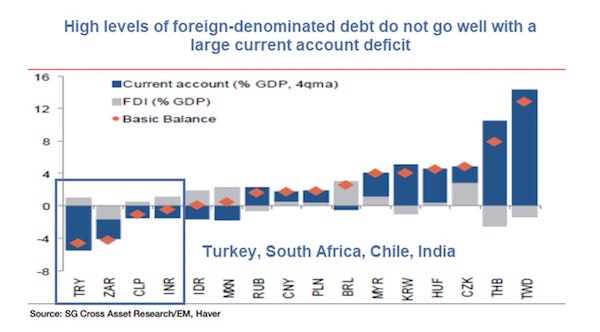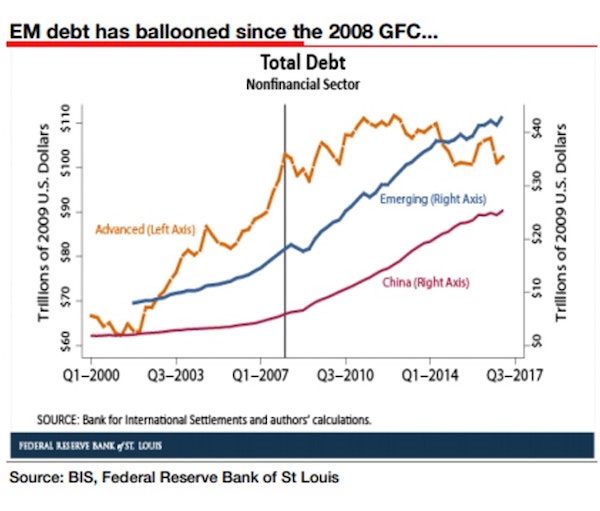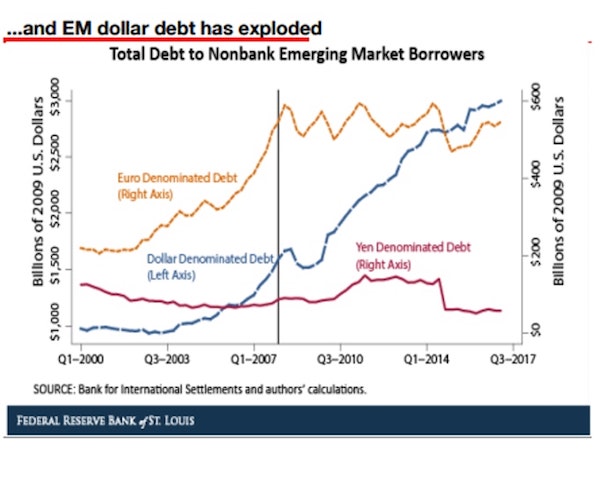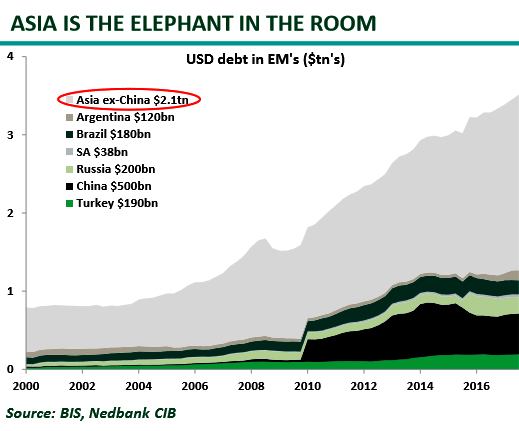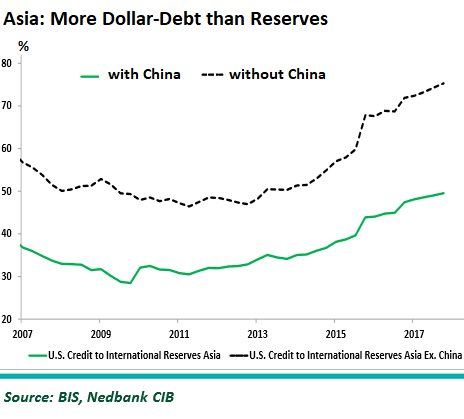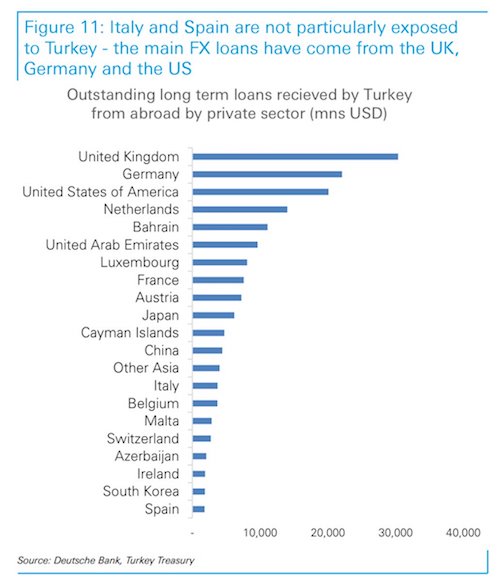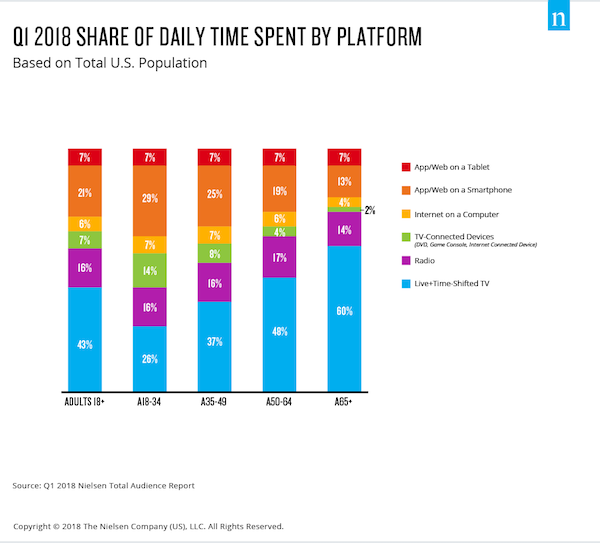
René Magritte Memory of a voyage 1955

The New York Times now helps Trump, or do they think this hurts him?
• Rosenstein Proposed Secretly Recording Trump, Invoking 25th Amendment (ZH)
[..] the NYT recounted on Friday an aborted mutiny attempt organized by Rosenstein, who allegedly tried to organize members of Trump’s cabinet to invoke the 25th amendment to oust Trump from office. In an attempt to persuade the clearly reluctant members of Trump’s cabinet, Rosenstein suggested that he or other officials should secretly tape Trump “to expose the chaos” he said was engulfing the West Wing. According to NYT, the sources were either briefed on Rosenstein’s plans, or learned about it from the files of former FBI Deputy Director Andrew McCabe, who was fired after being disgraced by an inspector general investigation. ABC News, which also reported the story, cited sources familiar with McCabe’s files. A grand jury is also weighing whether to press charges against McCabe for allegedly misleading the inspector general.
“Mr. Rosenstein made the remarks about secretly recording Mr. Trump and about the 25th Amendment in meetings and conversations with other Justice Department and F.B.I. officials. Several people described the episodes, insisting on anonymity to discuss internal deliberations. The people were briefed either on the events themselves or on memos written by F.B.I. officials, including Andrew G. McCabe, then the acting bureau director, that documented Mr. Rosenstein’s actions and comments. None of Mr. Rosenstein’s proposals apparently came to fruition. It is not clear how determined he was about seeing them through, though he did tell Mr. McCabe that he might be able to persuade Attorney General Jeff Sessions and John F. Kelly, then the secretary of homeland security and now the White House chief of staff, to mount an effort to invoke the 25th Amendment.”
[..] Mr. Rosenstein disputed this account. “The New York Times’s story is inaccurate and factually incorrect,” he said in a statement. “I will not further comment on a story based on anonymous sources who are obviously biased against the department and are advancing their own personal agenda. But let me be clear about this: Based on my personal dealings with the president, there is no basis to invoke the 25th Amendment.”

Yeah, strange things are happening…
• NY Times, McCabe Give Trump Perfect Cover To Fire Rosenstein, Sessions (Hill)
It has been a year of ironies: President Trump’s personal lawyer, Michael Cohen, once said he would take a bullet for Trump and now seeks to destroy him (and to do so pro bono). Sen. Ted Cruz (R-Texas) once denounced Trump for suggesting Cruz’s father was a presidential assassin but now politically relies on and praises the man who called him “Lying Ted.” The greatest irony of all, however, could be how the newspaper that Trump loves to call “the failing New York Times” succeeded in delivering to him what he has long wanted: a clean shot at firing Attorney General Jeff Sessions and Deputy Attorney General Rod Rosenstein, and then installing a new AG to oversee special counsel Robert Mueller.
To make this more bizarre, Trump could rely for all this on the man he publicly called on to be fired and possibly prosecuted — former FBI Acting Director Andrew McCabe. The Times dropped a bombshell story late Friday that Rosenstein discussed secretly recording Trump and seeking cabinet support to force him out of office as being incapacitated under the 25h Amendment. Rosenstein denies the story as “inaccurate and factually incorrect,” insisting “there is no basis to invoke the 25th Amendment.” However, McCabe reportedly wrote memos stating that Rosenstein did discuss the possibility of taping and entrapping the president. Trump has previously referred to McCabe’s memos as “fake.”
At least one source has said the comments about secret taping were made in jest. Of course, joking about secretly taping your boss or forcing him from office is not a huge improvement, particularly when you are technically controlling a special counsel’s investigation of the president. Even in jest, it fulfills Trump’s long narrative of a Justice Department set against him from the outset. So how could the Times clear the way for Trump to clean house at Justice and end up with Mueller directly controlled by an attorney general of his choosing? Simple.

The Kavanaugh story tries hard to be even more absurd than the Rosenstein one.
• Grassley Extends Deadline On Kavanaugh Accuser’s Decision To Testify (Pol.)
[..] late Friday, Grassley tweeted: “Five times now we hv granted extension for Dr Ford to decide if she wants to proceed w her desire stated one wk ago that she wants to tell senate her story Dr Ford if u changed ur mind say so so we can move on I want to hear ur testimony. Come to us or we to u.” Minutes later, he added: “Judge Kavanaugh I just granted another extension to Dr Ford to decide if she wants to proceed w the statement she made last week to testify to the senate She shld decide so we can move on I want to hear her. I hope u understand. It’s not my normal approach to b indecisive.”
Grassley followed with a candid lament that he was being outmaneuvered by Democrats: “With all the extensions we give Dr Ford to decide if she still wants to testify to the Senate I feel like I’m playing 2nd trombone in the judiciary orchestra and [Senate Minority Leader Chuck] Schumer is the conductor.” Grassley and other Republicans want Ford to appear on Wednesday, though Ford has requested a Thursday appearance. They accepted some of Ford’s requests after holding a conference call on Friday morning such as allowing one camera in the room, making sure Kavanaugh and Ford aren’t in the same hearing room at the same time and giving Ford breaks during testimony as well as security from the U.S. Capitol Police.

“Fourth Turning horror show with whipped cream and a cherry on top…”
This might come as a shock to readers, but the time is not far off when the remaining not-insane cohort of adult Americans gets good and goddamn sick of political sex bombing. Especially given this case of shuck-and-jive. Consider that the same CNN this week produced an entire segment about the shape and size of the President’s generative organ (as reported by an expert in these matters, the porn star and prostitute known as Stormy Daniels). It must be a subject of extraordinary interest to CNN’s Anderson Cooper. On the other flank of the news this week is the much more perilous showdown between the Department of Justice (and the FBI), and Mr. Trump, the cis-hetero-white Golem who happens to be president.
He has ordered these agencies to produce a set of un-redacted documents pertaining to the long-running Russia investigation, set into motion by personnel at these very places. It’s his prerogative under the constitution to do that. In turn, these agencies are being egged on by possibly culpable characters in this melodrama, such as former CIA Director John Brennan and Congressman Adam Schiff (D-Cal), to stonewall the Golem. If I were president — and I may get there yet — I’d send federal marshals into Rod Rosenstein’s office to seize these documents before they are mysteriously “lost.” A tremendous tension hangs over this transaction. Imagine the awful possibility that Mr. Trump may have to declare some kind of martial law to roust out these seditious rascals and clean up their departments. There’s your Fourth Turning horror show with whipped cream and a cherry on top.

There are plenty other plans. She just doesn’t like them.
• Theresa May Demands European Leaders Show UK Respect (Ind.)
Theresa May has demanded EU leaders show Britain respect, branding their public rejection of her Brexit proposals “not acceptable”. In a statement at Downing Street, the prime minister hit out at the way European Council President Donald Tusk discarded her plans without giving a detailed explanation or offering alternatives. Ms May said neither of the options previously offered by the EU were acceptable, stated that talks are now at an “impasse” and underlined her willingness to walk away if needs be – finishing with the words “we stand ready”. But the prime minister also made a new pledge to guarantee the rights of EU citizens living and working in the UK, even in the event of a no-deal Brexit.
Her intervention won approval from cabinet Brexiteers and to an extent from MPs on Conservative benches, steadying a volatile political situation which hours earlier had seen critics predicting the collapse of her strategy. Mr Tusk had surprised British officials by making an unexpectedly strong statement at the end of a summit in Salzburg this week, saying Ms May’s proposals for Brexit “will not work” and following it up with a social media post mocking her negotiating strategy. With pressure mounting, Ms May acknowledged from inside No.10 that Mr Tusk said the UK proposals would undermine the single market, but added: “He didn’t explain how in any detail or make any counter-proposal. So we are at an impasse.”
She said: “Throughout this process, I have treated the EU with nothing but respect. The UK expects the same. A good relationship at the end of this process depends on it. “At this late stage in the negotiations, it is not acceptable to simply reject the other side’s proposals without a detailed explanation and counter proposals. “So we now need to hear from the EU what the real issues are and what their alternative is so that we can discuss them. Until we do, we cannot make progress.”
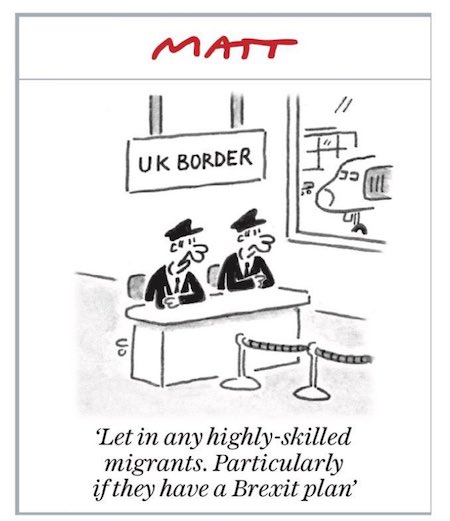

Someone in Scotland’s been digging into the law.
• Legal Action To Revoke Article 50 Referred To European Court Of Justice (G.)
A legal action to establish whether the UK can unilaterally stop Brexit has been referred to the European court of justice by the court of session in Edinburgh. The case was brought by a cross-party group of six Scottish MPs, MEPs and MSPs, who want the ECJ to offer a definitive ruling on whether the UK can halt the article 50 process without needing the approval of all other 27 EU member states. Rejecting the argument put forward by lawyers for the UK government, that ministers have repeatedly made it clear they have no intention of stopping the Brexit process, even if there were no deal with the EU, Scotland’s most senior judge, Lord Carloway, said: “It seems neither academic nor premature to ask whether it is legally competent to revoke the notification and thus to remain in the EU.”
Carloway, one of three judges to consider the case on appeal after it was initially rejected in June as “academic and hypothetical”, noted that the Commons would be required to vote on whether to ratify any Brexit deal before 29 March 2019, “a date which is looming up”, and that a judgment from the ECJ would “have the effect of clarifying the options open to MPs in the lead-up to what is now an inevitable vote”. Lord Menzies said: “There will have to be a vote, and it appears to me to be legitimate for those who are involved in that vote to know, by means of a judicial ruling, the proper legal meaning of article 50, and in particular whether a member state which has given notification of its intention to withdraw from the EU may revoke that notification of intention unilaterally before the expiry of two years after the notification.”

Monday could be good. New plans are demanded, but there’s no time for them.
• UK PM May Facing Ministerial Resignations Over Brexit Plan (R.)
Some of British Prime Minister Theresa May’s ministers will demand a “Plan B” on her Brexit proposal next week and could quit if she does not change course, the Telegraph newspaper reported late on Friday, citing unnamed sources. Ministers will demand an alternative plan to her “Chequers” proposal at a Cabinet meeting on Monday, the Telegraph said. That plan had already been savaged by European Union leaders in Salzburg earlier in the week, prompting May to defiantly challenge leaders of the bloc to come up with its own plans. Pro-Brexit members of May’s party on Friday had welcomed her defiant tone, but her Chequers proposal has many domestic critics, too.
The Telegraph said there was “speculation” that work and pensions minister Esther McVey might walk out of Monday’s meeting if no new proposal was presented, while international development minister Penny Mordaunt was also tipped as a possible resignation candidate, though the newspaper said friends denied she would resign. Earlier on Friday, Mordaunt said that the EU’s attitude was increasing support within Britain for an exit from the bloc, even if it meant leaving without a deal. .

Let’s hope Russia got this one right.
• Russia, Turkey Agree Borders Of Syria Demilitarised Zone (AFP)
Russia and Turkey have agreed on borders of a demilitarised zone in northern Syria, Russia’s top diplomat said Friday, part of a deal that could check an assault on the last rebel enclave in Idlib. “Just yesterday or the day before, the militaries of Russia and Turkey agreed the concrete frontiers of the demilitarised zone,” Russian Foreign Minister Sergei Lavrov said after talks with his Bosnian counterpart Igor Crnadak. Moscow says the demilitarised zone would help stop attacks from Idlib on Syrian army positions and Russia’s military bases in the region. Russian President Vladimir Putin and Turkish counterpart Recep Tayyip Erdogan agreed the establishment of the 15 to 20 kilometre (9.3-12 miles) buffer zone on Monday after talks that lasted more than four hours.
Security in the zone, which includes parts of Idlib and neighbouring provinces including the city of Aleppo, will be overseen by Turkish contingents and Russian military police. The agreement will prevent military action against the city of Idlib, Russia’s defence minister said. “It’s an intermediate step… but a necessary step,” Lavrov said of the zone. “By mid-October, all (fighters of the Al-Nusra Front) must leave this demilitarised zone, and all heavy military equipment must be pulled out of there,” he said.

Practising for the west?
• Google Suppresses Memo Revealing Plans To Track Search Users In China (IC)
Google bosses have forced employees to delete a confidential memo circulating inside the company that revealed explosive details about a plan to launch a censored search engine in China, The Intercept has learned. The memo, authored by a Google engineer who was asked to work on the project, disclosed that the search system, codenamed Dragonfly, would require users to log in to perform searches, track their location — and share the resulting history with a Chinese partner who would have “unilateral access” to the data. The memo was shared earlier this month among a group of Google employees who have been organizing internal protests over the censored search system, which has been designed to remove content that China’s authoritarian Communist Party regime views as sensitive, such as information about democracy, human rights, and peaceful protest.
According to three sources familiar with the incident, Google leadership discovered the memo and were furious that secret details about the China censorship were being passed between employees who were not supposed to have any knowledge about it. Subsequently, Google human resources personnel emailed employees who were believed to have accessed or saved copies of the memo and ordered them to immediately delete it from their computers. Emails demanding deletion of the memo contained “pixel trackers” that notified human resource managers when their messages had been read, recipients determined.

For posting ISIS execution pictures.
• French Court Orders Psychiatric Assessment of Marine Le Pen (Sp.)
The request is connected with a series of images she posted on Twitter showing Daesh* executions. France’s National Rally party leader Marine Le Pen took to Twitter to express her anger with the court order. “I thought I had been through it all: well, no! For denouncing the horrors of Daesh (Isis) with tweets, the “justice system” has referred me for a psychiatric assessment. How far will they go?!” she said. “This regime is really starting to be frightening,” Le Pen added. Le Pen noted that, contrary to French media reports, the procedure was not customary. According to a decision made on September 11, which Le Pen posted on Twitter, the purpose of the psychiatric assessment was to answer the question: “Can she [Le Pen] understand the statements and answer the questions.”
In the list of questions given to the experts, there were eight points, among which were: “whether she acted under the influence of forces or circumstances of force majeure” as well as “is she in a dangerous state from the standpoint of psychiatry or forensic science, and what is the forecast,” among others. The National Assembly (lower house of parliament) of France in November 2017, at the request of the Nanteré Prosecutor’s Office, deprived Le Pen of parliamentary immunity in connection with the publication on Twitter. If the French court finds her guilty, the leader of the party may face up to three years in prison and a fine of 75,000 euros.

More Guardian smear, sources that are known have long been discredited, Mueller’s allegations have been keelhauled, anonymous sources are suspect.
• Russia’s Secret Plan To Help Julian Assange Escape From UK (G.)
Russian diplomats held secret talks in London last year with people close to Julian Assange to assess whether they could help him flee the UK, the Guardian has learned. A tentative plan was devised that would have seen the WikiLeaks founder smuggled out of Ecuador’s London embassy in a diplomatic vehicle and transported to another country. One ultimate destination, multiple sources have said, was Russia, where Assange would not be at risk of extradition to the US. The plan was abandoned after it was deemed too risky. The operation to extract Assange was provisionally scheduled for Christmas Eve in 2017, one source claimed, and was linked to an unsuccessful attempt by Ecuador to give Assange formal diplomatic status.
The involvement of Russian officials in hatching what was described as a “basic” plan raises new questions about Assange’s ties to the Kremlin. The WikiLeaks editor is a key figure in the ongoing US criminal investigation into Russia’s attempts to sway the outcome of the 2016 presidential election. Robert Mueller, the special counsel conducting the investigation, filed criminal charges in July against a dozen Russian GRU military intelligence officers who allegedly hacked Democratic party servers during the presidential campaign. The indictment claims the hackers sent emails that embarrassed Hillary Clinton to WikiLeaks. The circumstances of the handover are still under investigation. According to Mueller, WikiLeaks published “over 50,000 documents” stolen by Russian spies. The first tranche arrived on 14 July 2016 as an encrypted attachment. Assange has denied receiving the stolen emails from Russia.

Very promising.
• Ecuador Pledged to Not Kick Out Assange – Lawyer (RT)
Despite widespread speculation a few months ago that WikiLeaks founder Julian Assange may be kicked out of the Ecuadorian embassy by the country’s new leadership, his asylum seems to be safe for now, his lawyer told RT. In July, there were numerous reports that Ecuador’s president, Lenin Moreno, may revoke the political asylum given to Assange by his predecessor, Rafael Correa, as part of an effort to establish closer ties with the US. The threat never materialized, but his long-time lawyer said “anything could happen at any time.” “Ecuador has made it clear in the past few months – after this wide-spread speculation that he would be forced to leave – that they will respect the asylum,” she said.
Assange remains cut off from all communications and kept in what is effectively solitary confinement with no access to outdoor areas. His health is deteriorating, and the UK authorities have made sure that he won’t get treatment without leaving the embassy, she said. Assange was granted asylum in August 2012, skipping bail in the UK justice system. At that time, he was fighting extradition to Sweden, where he faced prosecution over a now-closed case over alleged sex offenses. He said he had to seek Ecuador’s protection because if forced to go to Sweden, he could be extradited to the US and face serious charges over his actions as WikiLeaks founder.

Would have been a good solution.
• Ecuador Reportedly Mulled Sending Assange As A Diplomat To Russia (RT)
London refused to grant WikiLeaks founder Julian Assange diplomatic immunity so he could escape the confinement of the Ecuadorian embassy in the UK and relocate to Russia, Reuters reports, citing government communications. The persona of Julian Assange has become a thorn in Ecuador’s president Lenin Moreno’s side and, ever since assuming office in May of last year, Moreno has made every effort to make sure the Australian’s stay at Ecuador’s embassy in London comes to an end as soon as possible. To shift the responsibility for Assange’s protection against US persecution, Ecuador allegedly mulled offering the WikiLeaks founder a diplomatic post in Russia, which the country hoped would enable him –protected by diplomatic immunity– to finally leave the embassy after six years of arbitrary detention.
London, however, refused to honor Moreno’s move to authorize “special designation” for 47-year-old to carry out diplomatic functions in Moscow, and declined to grant the whistleblower a free passage out of the country, Reuters reports, citing a letter by Ecuador’s foreign ministry to opposition legislator Paola Vintimilla. According to the letter, Quito abandoned its idea to relocate the whistleblower to Moscow after the UK Foreign Office refused to recognize Assange’s special status, or any privileges and immunities awarded under the Vienna Convention on Diplomatic Relations. The “special designation” status awarded by the Ecuadorian president would allow Assange to hold diplomatic posts abroad even if the whistleblower is not career diplomat. However, under English law, the 47 year-old can only enjoy diplomatic privileges, such as immunity, only if his credentials are accepted by the Foreign Office.
[..] Citing at least four, traditionally anonymous, sources, the Guardian wrote that Moscow was plotting to smuggle Assange out of London on Christmas eve last year, but dropped the plan because it was “deemed too risky.” The paper, claimed that Ecuador’s former London consul, Fidel Narvaez, was in talks with Russian diplomats and in constant contact with a ‘Russian businessman’ who coordinated the proposed operation with the Kremlin. It took the newspaper a mere five paragraphs of its 1,000-word report to bring up “questions about Assange’s ties to the Kremlin” in the context of the notorious Mueller probe and alleged ‘Russian hacking’ of the US elections.



